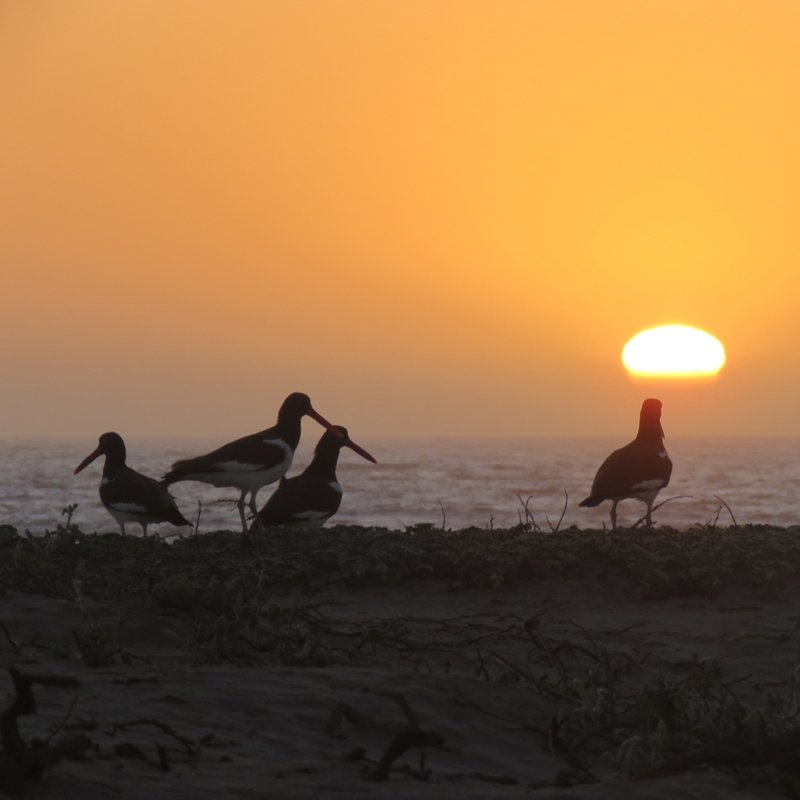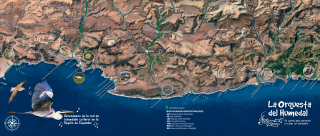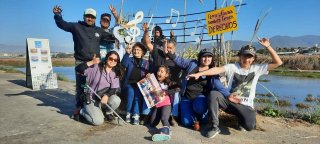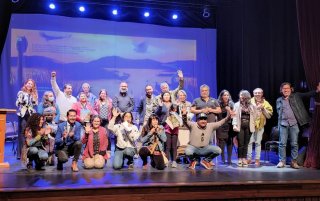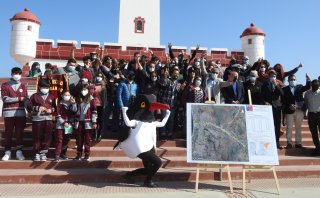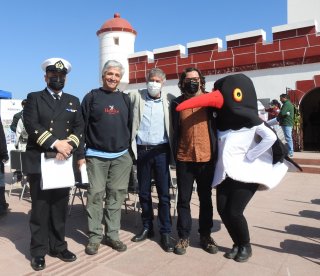On the way to a new Ramsar site
Good news from our Project Competition of the Coastal Wetlands Initiative South America
The Manfred-Hermsen-Stiftung supports through a bianual project competition since 2019 local NGOs and research institutes in the protection of coastal wetlands, building capacities for conservation work among civil society organizations.
Two organizations of the 2nd Project Competition have made great progress now in their work towards the conservation of coastal wetlands and protection of shorebirds in the Coquimbo Region of Chile, colaborating with the Coastal Wetlands Programme of the Chilean Ministry of Environment and UN Environment Programme funded by the Global Environment Facility.
Background
The cluster of coastal wetlands in the Coquimbo Region of Chile posesses an extraordinarily scenic attraction, with sites of high ecological value and great sociocultural significance. But due to a lack of awareness, the expansion of urban areas, and anthroprogenic pressure on a whole, they have been subject to severe deterioration in many cases. However, since the start of the second project competition, great progress towards the protection of these ecosystems has been achieved.
Raising awareness & governance
The team of REDAVES was very successful in their project “Programme for environmental strengthening, empowering neighbours, workers, and students at Bahía de Coquimbo”, conducting an awareness campaign, building important ties with local authorities, and making significant contributions to the legal protection of two coastal wetlands in Coquimbo Bay.
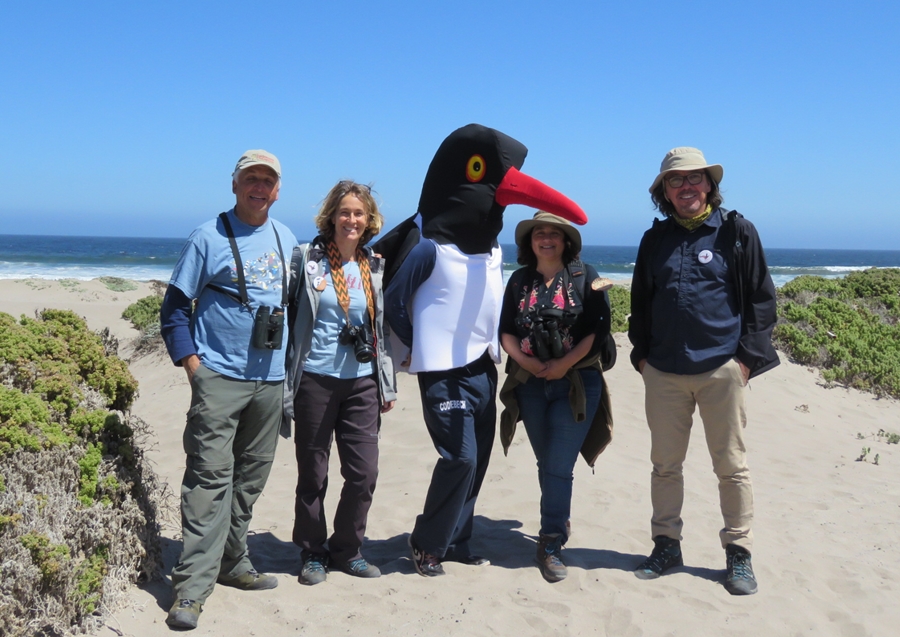 Besides the great outreach and effectiveness of the awareness campaign, an important archievement consists in the multiple stakeholder process of designating the Río Elqui's Rivermouth as a protected site under the newly passed “Urban Wetland Law” in Chile. Furthermore, they are taking an important role in the ongoing process of the creation of a new Ramsar site for the Punta Teatino wetland.
Besides the great outreach and effectiveness of the awareness campaign, an important archievement consists in the multiple stakeholder process of designating the Río Elqui's Rivermouth as a protected site under the newly passed “Urban Wetland Law” in Chile. Furthermore, they are taking an important role in the ongoing process of the creation of a new Ramsar site for the Punta Teatino wetland.
Working very actively towards the protection of shorebirds in Coquimbo Bay, team members of RedAves dressed up as an Oyster Catcher in a number of outreach activities and shorebird monitoring groups of volunteers have been formed. These groups are also implementing practical measures such as fencing of nesting sites and the establishment of signalling boards, guiding visitors of coastal wetlands and beaches to behave consciously and lead their dogs on a leash.
Environmental education
To deepen the understanding and forment conciousness about the value of the coastal wetlands of the region, the Center for Advanced Studies in Arid Zones (CEAZA) recently released the children's tale "La Orquesta del Humedal".
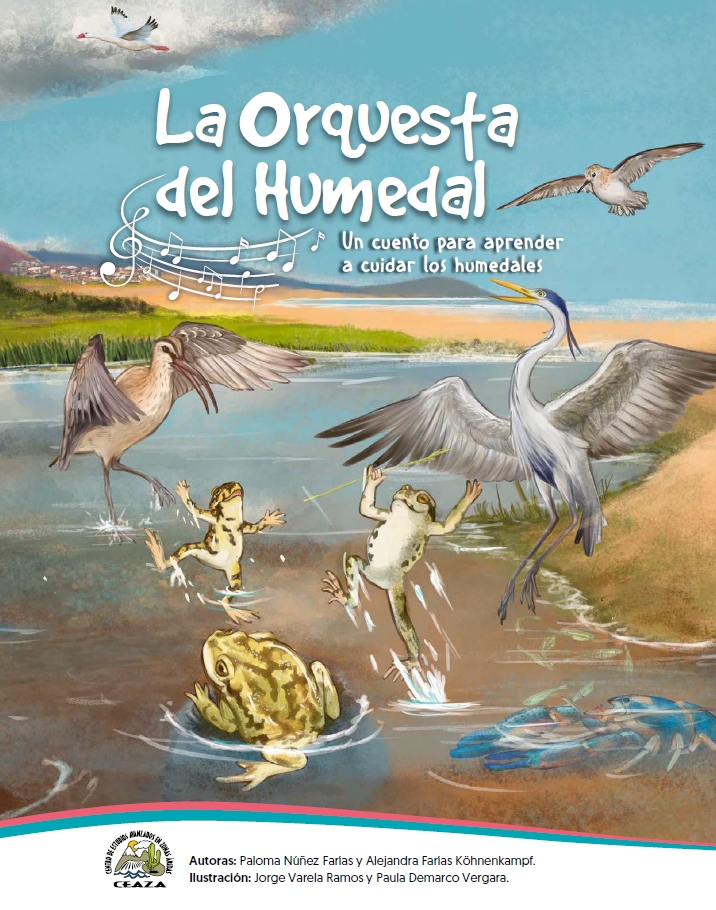 The children's tale is the result of a collaborative process amongst a multidisciplinary group of sceintist and academics with local environmental and social organisations. It is now being used by teachers and others as a very attractive educational media, inspiring dialogues about the role of ecosystems and their biodiversity in todays society.
The children's tale is the result of a collaborative process amongst a multidisciplinary group of sceintist and academics with local environmental and social organisations. It is now being used by teachers and others as a very attractive educational media, inspiring dialogues about the role of ecosystems and their biodiversity in todays society.
In the upcoming months there are a series of events in the context of it´s publication and diffusion being planned in the region, but the tale is already highly celebrated among the local community of education workers and environmental organizations.
We hope that thanks to the sensibilization, the formation and strenghtening of networks, and advances in the legal protection and governance of coastal wetlands, a lasting transformation of the value system is being archieved and hence these ecosystems are going to be appreciated and duly conserved as key natural and cultural heritage of the coastal communities in the Coquimbo Region and beyond.

